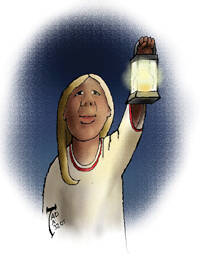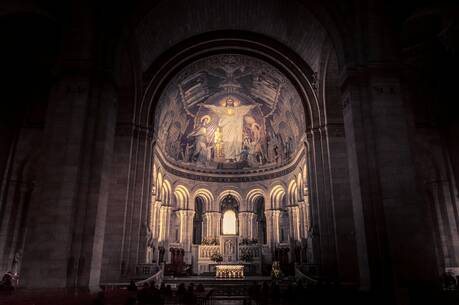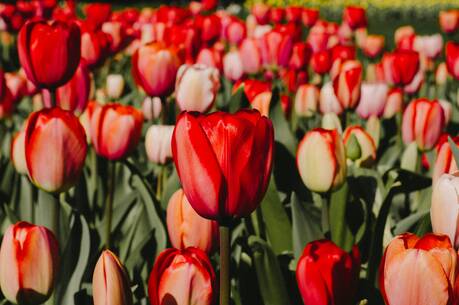Inexhaustible Light
I am always prepared. When I travel I pack extras of everything just in case I or someone I am with has a need. I readily identify with the wise virgins in today’s Gospel. But there is something deeply disturbing as the parable plays out. The women who come prepared for the long vigil will not share their oil with their needy sisters. Instead, they send them off on a fool-hardy mission at midnight to go buy their own. How can such seemingly selfish hoarding be laudable?
Many biblical commentators explain that parables are meant to make only one point, and selfishness versus sharing is not the point of this one. It is a parable about the end time, which speaks about how each person needs to be accountable for his or her own good deeds, or lack of them, at the time of judgment. Just as in the Sermon on the Mount, where Jesus says, “Let your light shine before others so they may see your good works and give glory to God” (Mt 5:16), so in today’s Gospel the oil that fuels the light is also to be understood as good deeds, and no one can share theirs with someone who has none.
Nonetheless, there is still a disturbing dynamic set up by the parable. It constructs a dichotomous world in which some are wise and some foolish, some are completely prepared and some not at all; some are welcomed in to the feast and some are locked out. Matthew has a penchant for binary oppositions like this: weeds and wheat; sheep and goats; a house built on rock and one built on sand; the wise and the foolish. But real life seems always to be somewhere in between: each of us a little bit foolish in our growth toward wisdom, all of us somewhat prepared, but never completely.
When placed in the context of the whole Gospel, instead of inducing fear, the parable gives assurance that when we are responding all along to the lifelong courtship by the Bridegroom, we will be ready for the moment of consummation. We prepare for the critical moment of meeting the Beloved face to face with all our daily choices for living justly. Every time we resist hoarding oil for ourselves, not stockpiling so that others are left wanting, we allow Christ’s light to fill us and spread to others.
It is as Isaac of Nineveh, a seventh-century Nestorian bishop quoted by John Shea in The Spiritual Wisdom of the Gospels for Christian Preachers and Teachers, describes: “There is a love, like a small lamp, fed by oil, that goes out when the oil is ended; or like a rain-fed stream which goes dry when rain no longer feeds it. But there is a love, like a spring gushing from the earth, never to be exhausted.” Wise ones become one with the inexhaustible river of Christ’s love; their oil is continuously replenished as it is consumed.
Being wise also means knowing, as the first reading describes, that it is not our efforts alone that make for the light. Wisdom herself, who is unfading resplendence, seeks us out. Long vigils through times of darkness end at the dawn with Holy Wisdom sitting right at one’s own gate, wanting to be found. Moreover, a closed door is never the final act. Just as God’s power burst through the stone door of the tomb, Holy Wisdom can daily open the door of our hearts, transforming our lack of oil into an inexhaustible river of light and love.
This article also appeared in print, under the headline “Inexhaustible Light,” in the October 31, 2011, issue.








